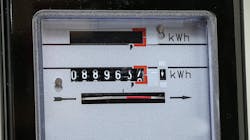ATRI: EV tax could supplement Highway Trust Fund
The federal Highway Trust Fund (HTF)—the primary source of funding used by state governments to maintain and improve U.S. surface transportation infrastructure—has been up against several headwinds for decades.
The majority of HTF revenues are derived from fuel taxes, which were last increased in 1993. That has led to inflation-related roadway investment shortfalls. In addition, improved fuel efficiency in today’s cars and commercial trucks contribute less per mile to highway tax revenue. And over the last 10 years or so, even though the share of electric vehicles in the U.S. has grown, EV users do not pay federal motor fuels taxes.
As momentum toward a zero-emission future grows, along with looming concerns around nationwide infrastructure funding initiatives, the American Transportation Research Institute has just released research that describes a framework for EV taxation to support transportation infrastructure. Through a tax on the electricity that is used in transportation, ATRI’s report identifies an approach to connecting the growing number of U.S. electric vehicles with HTF revenue streams.
At present, EVs do not contribute substantively to state and federal highway trust funds. According to ATRI, there are numerous programs that subsidize the use of electric vehicles, thus exacerbating the infrastructure investment deficit. ATRI’s analysis quantifies this revenue loss at more than $4 billion over the next 10 years.
The report suggests that U.S. electric utilities are well-equipped to begin collecting a per-kilowatt-hour charge of 2.1 cents for transportation-related electricity consumption in the coming years. Using a phased approach, utilities would identify, measure, and tax electricity that is used for transportation—starting first with electricity that is dispersed through public charging stations and residential smart chargers.
“This analysis demonstrates how an electricity tax can easily emulate all the key components of a fuel tax. Moving forward with an efficient utility-based approach will help EV owners support the infrastructure that they use every day,” Paul Enos, CEO of the Nevada Trucking Association, said in a statement.
According to ATRI's report, in 2020, electric utilities accrued revenues of more than $390 billion. And those utilities will likely see revenue growth in the coming decades as the EV fleet expands.
“Projections indicate that the U.S. BEV fleet will increase by a factor of 15 in the coming decade, further depleting HTF income,” the report noted. “It is estimated that this will produce a gap of more than $1 billion annually in the coming years.”
ATRI’s full report is available for download.
About the Author
FleetOwner Staff
Our Editorial Team
Kevin Jones, Editorial Director, Commercial Vehicle Group
Josh Fisher, Editor-in-Chief
Jade Brasher, Senior Editor
Jeremy Wolfe, Editor
Jenna Hume, Digital Editor
Eric Van Egeren, Art Director
